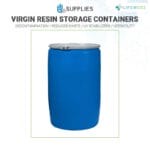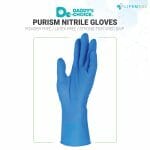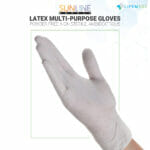What are Isolation Face Masks?
Isolation face masks are a type of personal protective equipment (PPE) designed to protect the wearer from exposure to airborne particles, fluids, and contaminants, while also preventing the transmission of infectious agents from the wearer to others. These masks are commonly used in healthcare settings such as hospitals, clinics, and long-term care facilities to create a protective barrier against pathogens. Isolation face masks are typically made from lightweight, breathable materials, and may feature multiple layers to provide effective filtration and protection.
Why are Isolation Face Masks Important?
Isolation face masks are critical for infection control, particularly in healthcare environments where there is a risk of exposure to airborne viruses, bacteria, and other pathogens. These masks help prevent healthcare workers from contracting or spreading infections during patient care, especially when working with patients who have contagious respiratory illnesses.
During pandemics or outbreaks, such as the COVID-19 pandemic, isolation face masks become even more essential for protecting healthcare professionals, patients, and the general public from airborne transmission of infectious diseases. By reducing the risk of droplet transmission, isolation masks help curb the spread of infections and protect both the wearer and those around them.
In addition to protecting against respiratory droplets, isolation face masks also provide a barrier against fluids, such as blood or bodily fluids, which can pose additional infection risks in medical settings.
Key Features of Isolation Face Masks
- Multi-Layered Design: Most isolation masks are made with multiple layers to enhance filtration, providing both comfort and effective protection against airborne particles and fluids.
- Fluid-Resistant: These masks are designed to resist the penetration of liquids, providing a barrier against droplets and splashes that may carry infectious agents.
- Breathability and Comfort: Made from lightweight and breathable materials, isolation face masks ensure that users can wear them for extended periods without discomfort.
- Secure Fit: Isolation face masks typically include ear loops or ties to ensure a secure and comfortable fit over the nose and mouth, minimizing the risk of air leakage.
Applications of Isolation Face Masks in the PPE Industry
Isolation face masks are widely used in healthcare environments to protect healthcare professionals during patient interactions. Nurses, doctors, and other medical staff wear these masks when performing surgeries, examinations, or caring for infectious patients to reduce the risk of transmission.
In addition to healthcare, isolation masks are often used in public spaces, particularly during outbreaks, to help prevent community transmission of airborne diseases. Schools, businesses, and public institutions may require isolation face masks to promote safety and minimize the spread of contagious illnesses.
Conclusion
Isolation face masks are an essential component of personal protective equipment, providing protection against airborne particles, fluids, and infectious agents. By offering a barrier that protects both the wearer and others, these masks play a critical role in infection control and are especially important in healthcare settings. During pandemics or outbreaks, isolation face masks help mitigate the spread of infectious diseases, making them a vital tool in ensuring public health and safety.
« Back to Glossary Index

















